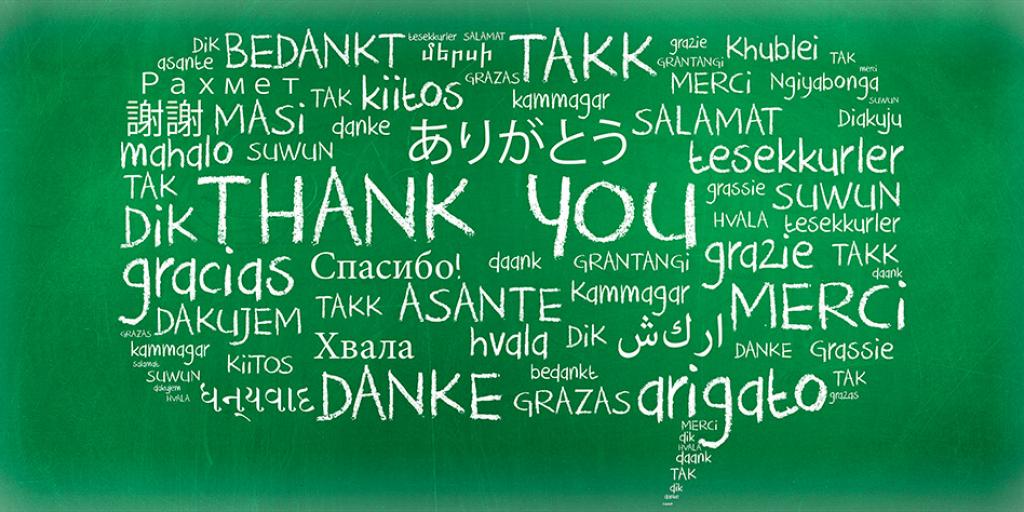
Gratitude
World-renowned author and motivational speaker Zig Ziglar stated: "The more you express gratitude for what you have, the more likely you will have even more to express gratitude for."
The idea of gratitude is of great interest to the general public, as evidenced by the prevalence of books and journals available on the subject (with hundreds if not thousands of options on Amazon.com alone). Most publications carry the common message that a life oriented around gratefulness is the cure for insatiable yearnings and the many ills of life. The concept of gratitude has a long history. In Jewish, Christian, Muslim, Buddhist, and Hindu thought, gratitude is a highly-prized human disposition. To broaden this concept further, the consensus throughout the world is that people are morally obligated to feel and express gratitude in response to received benefits, albeit in a variety of different ways.
Gratitude can be defined as an emotion, an attitude, a moral virtue, a habit, a personality trait, or a coping response. Put another way, it is “an emotion, one that makes a person feel happier. Gratefulness is also a mood as well as a personality trait. Some people are just more inclined to feel grateful as a daily habit.… Gratitude is both a temporary feeling and a dispositional trait. In both cases, gratitude involves a process of recognizing, first, that one has obtained a positive outcome and, second, that there is an external source for that good outcome” ("Gratitude," PsychologyToday.com).
So gratitude is the ability to notice, appreciate, and savor the elements of life vital to well-being. In fact, the degree that a person could develop a perspective of one’s life as a “gift” is the degree that a person is able to achieve optimal psychological functioning.
Robert Emmons, in his article “Counting Blessings Versus Burdens,” published in the Journal of Personality and Social Psychology, found that the exercise of writing five items for which we are grateful or thankful each week helped people gain a positive feeling about their lives as a whole and made them more optimistic in their expectations of the future. Furthermore, the effects on well-being (positive affect and life satisfaction) were apparent to the participants’ spouses. This statement should further encourage each of us to have more of an attitude of thankfulness.
Emmons showed that to maximize one’s contentment in life we must be consciously grateful for our blessings. Beyond the empirical evidence shown by Emmons, he reported that focusing on our blessings is associated with a more positive and optimistic appraisal of life, more time exercising, and fewer physical health issues. People led to focus on their blessings were more likely to help someone with a personal problem or offer emotional support, thereby suggesting a “pro-social” motivation as a consequence of the gratitude.
Emmons’ research reflects and supports the truth and principles contained in the pages of the Bible. King David in his Psalms was inspired to write of giving thanks in dozens of verses. Jesus Christ set us an example of giving thanks and having gratitude throughout the gospels (Matthew 15:36, 26:27; Mark 8:6, 14:23; Luke 22:17, 19; John 6:11, 23). The Apostle Paul admonishes Christians to give thanks always for all things (Ephesians 5:20).
Gratitude is a response to received benefits and unmerited rewards. Thoughtful consideration of an "attitude of gratitude" will allow you a greater understanding of the positive attitude the Apostle Paul exhibited while caught up in negative circumstances. Paul understood gratitude; he understood that Jesus Christ was responsible for his gain (2 Corinthians 5:17–19).
Will you also come to that place of understanding, and learn to always find something for which to be thankful—even in the face of life's greatest challenges?
There is hope. Watch the Tomorrow’s World telecast “Are We a Thankful Nation?” to learn more about the importance of gratitude to the Creator and Redeemer of mankind. Also, be sure to order your free copy of What is a True Christian? or read it online today.
Stay up to date with our Weekly Digest Email!
Tomorrow's World ComMentary Podcast
Subscribe to Tomorrow's World Commentary podcasts on iTunes and Google Play!



